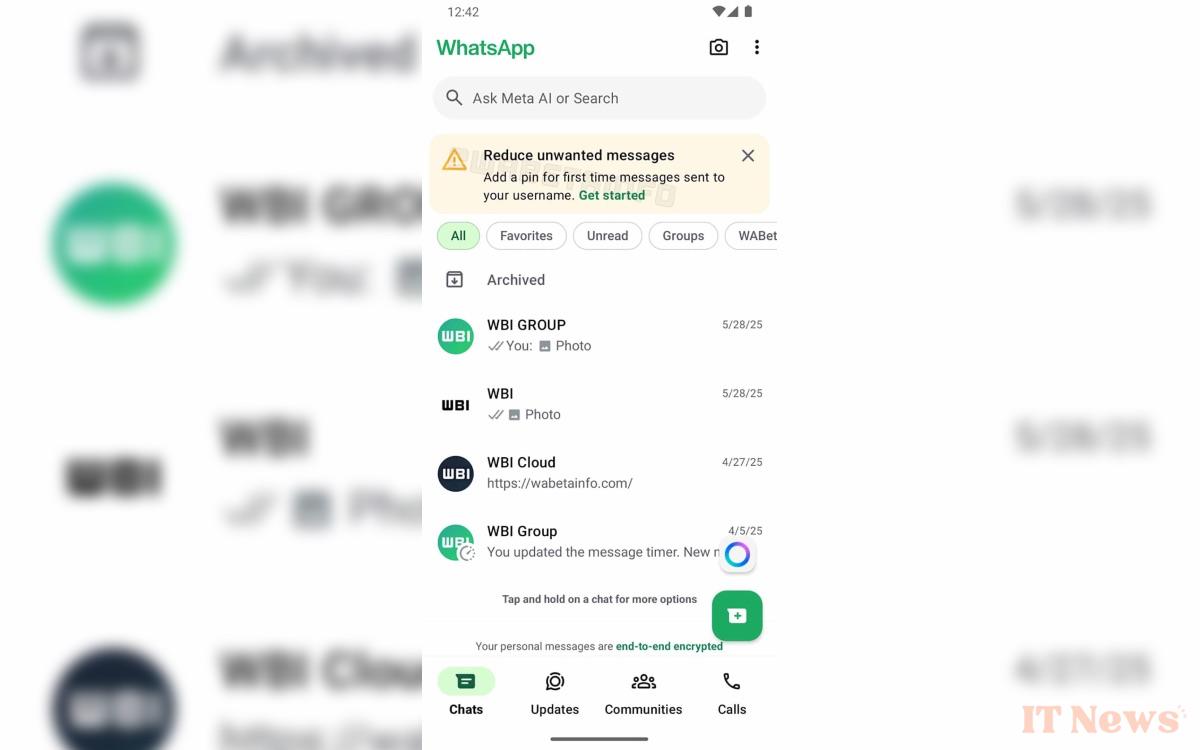WhatsApp continues to strengthen its users' security. A new option will limit unsolicited messages received via usernames. And even if someone knows your username, they won't be able to contact you without it.
WhatsApp has been multiplying its new features in recent weeks. Recently, the app announced an artificial intelligence-based feature capable of summarizing long group chats. It is also testing new options on its web version to make it as comprehensive as the mobile app. After productivity and ease of use, privacy is now back in the spotlight, with a feature designed to limit unwanted or unknown messages. The upcoming new feature is pseudonyms, a feature currently being rolled out that allows you to chat without revealing your phone number. To avoid unwanted messages related to this new contact method, WhatsApp is developing PIN protection. A first screenshot has been spotted in the Android 2.25.17.48 beta version by our colleagues at WABetaInfo. The feature should appear soon in an official update.
WhatsApp will require a PIN code before you can contact a username
In concrete terms, the system works like a filter. Even if someone knows your username, they won't be able to send you a message without entering the PIN code you set. The latter remains confidential and can only be shared with trusted people. WhatsApp already displays a banner in the “Discussions” tab to invite users to configure this protection. Once activated, it blocks unwanted contacts from the first message. This new feature complements WhatsApp’s main objective: to let the user control who can contact them. The nickname allows you to hide your number, but the PIN offers an additional layer of security, greatly limiting spam or harassment attempts. The app specifies that this feature will be optional but strongly recommended, especially if you choose a simple or easy-to-guess nickname. The code acts as a private key, to be shared only with trusted contacts. The protection is currently being tested through the Google Play beta program, but it is expected to be integrated into a future stable version of the Android app.





0 Comments